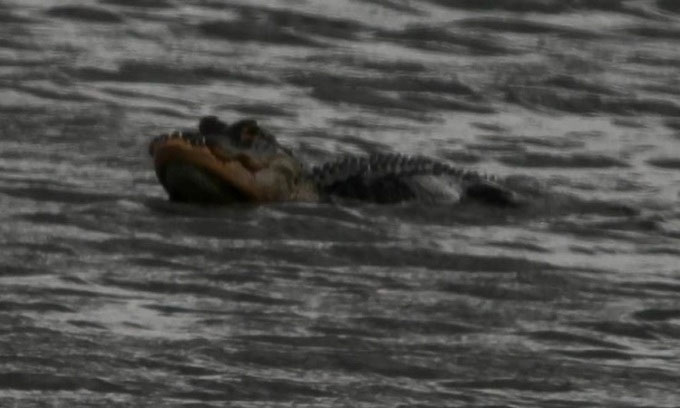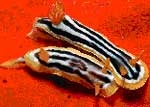A 2.7-meter-long alligator living in the Everglades seems to be functioning normally despite losing most of its upper jaw.

The alligator may have lost half of its jaw in a fierce battle. (Photo: Stacey Lynette)
Stacey Lynette, a resident of Florida, shared a photo of the unique alligator swimming on the water’s surface with its lower teeth protruding where the upper jaw should be. According to Lynette, despite its unusual appearance, the alligator seems to be doing fine.
There are approximately 1.3 million American alligators residing in Florida, distributed across all 67 counties. They can grow up to 4.6 meters long and weigh over 544 kg, living 30 to 50 years in the wild. Hunting large alligators is a legal activity in Florida. American alligators are known for their remarkable ability to heal from injuries. They are one of the few terrestrial vertebrates capable of regrowing limbs, such as their tails. Of course, the alligator in Lynette’s photo cannot regrow its entire set of teeth, but its healing abilities certainly help prevent it from bleeding to death after the accident.
American alligators often compete for mating rights and territory, especially during the breeding season. Intense battles can occur during this high-stress period, potentially causing severe injuries to opponents, such as broken legs or damaged eyes. It is possible that the alligator lost its upper jaw in such a fight.
The primary reason many people fear American alligators is their sharp teeth. They sit at the top of the food chain, using their jaws, which contain over 80 teeth, to take down prey. They are famous for having one of the strongest bite forces in the animal kingdom, with a maximum recorded bite force exceeding 13,000 N. Hunting with half a jaw can be challenging for the alligator. It may survive by preying on smaller animals such as invertebrates, fish, turtles, amphibians, and even fruits.





















































